Australian underwear brands Step One, Sparx see sales rise during Covid
With features such as anti-chafe ‘kanga pouches’ and ‘ultra-glide’ panels, Aussie men are finally moving on from the supermarket underwear multi-pack as indie brands take on the global giants.
NSW
Don't miss out on the headlines from NSW. Followed categories will be added to My News.
It wasn’t that long ago that Greg Taylor’s Waterloo apartment was filled with men’s undies. But it’s not what you’re thinking.
In 2016, the self-proclaimed entrepreneur had stumbled upon a gap in the men’s fashion sector — Australian designed underwear — and he was working hard to fill the gap.
Now his brand, Step One — named for the fact that pulling on your undies is the first thing you do each morning — expects to turn over about $60 million in revenue this year and he successfully launched in the UK last year amid a world pandemic.
Not far away, Patrick Psotka’s Bondi apartment was similarly crowded with men’s underwear after he left behind a short-lived stint as a Deliveroo pushbike rider to launch his brand, Sparx, in 2017.
This time last year, Psotka’s girlfriend and long-suffering flat mates were packing men’s underwear for delivery from their home, stacks of product crowding the hallways and living room. Then he rented a garage at North Bondi and months later that grew to three garages.
Now, Sparx is sold and distributed from a warehouse, his mates have been replaced by a third party logistics company to pack and distribute and he expects to hit $7 million in sales this year.
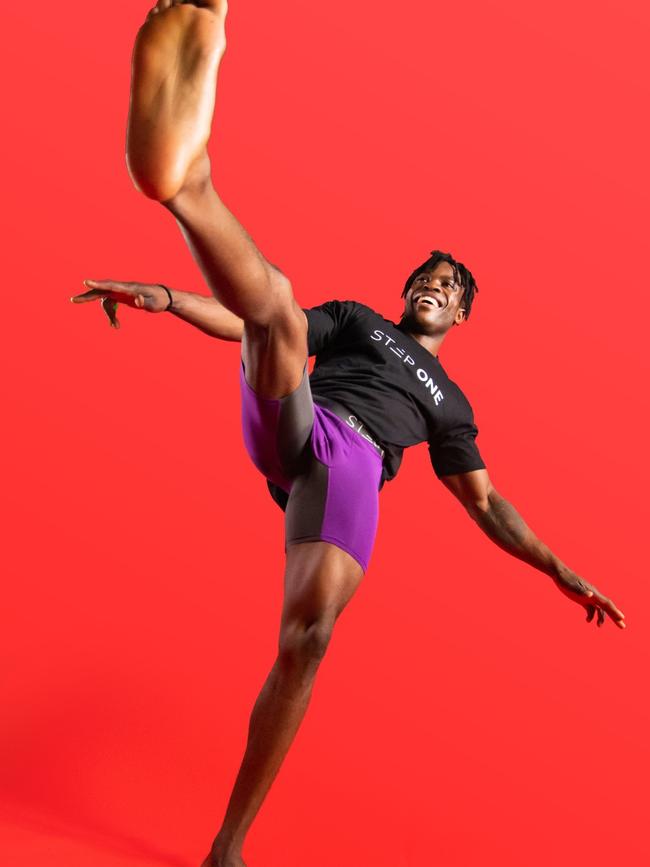
Not bad for a product that has long been surreptitiously bought in packs of five from supermarkets.
Taylor and Psotka are leading the charge with their indie, Australian-designed brands in the hope of disrupting the sector long since dominated by just a few names.
Gone are the days when men had a choice of Bonds, Holeproof Underdaks, Hard Yakka, Jockey Y-fronts or Calvin Klein trunks if they wanted to splurge. And while Bonds — now owned by the global underwear giant Hanes — still holds market share in Australia, these indie brands are nipping hard on their heels.
“We came to market to disrupt it,” says 40-year-old Taylor of his product that incorporates unique ultra glide panels on the inside leg of the trunks to prevent chafing from sweating. “There has been no innovation in men’s underwear for the past 50 years, they have pretty much always just been three pieces of fabric stitched together.
“Women’s underwear evolved decades ago giving them so much choice but that wasn’t there for men.”
Psotka, 28, saw a similar gap in the market around the same time as Taylor, for a unique Australian product that could be worn in our hot climate — not a bad insight for a Canadian who had only been living in Australia for 18 months.
“I had been wearing the undies I brought with me from Canada but got to the stage where I had to buy new ones and I was shocked at how few brand options there were in the department stores,” Psotka says.
“I found that in Australia there was a 90 per cent chance that if you were a man, you were wearing either Bonds or Calvin Klein trunks. There was a real call for a pair of undies that had to, firstly, be comfortable and secondly, functional, and made from a fabric that was breathable and moisture-wicking for the Aussie climate.”
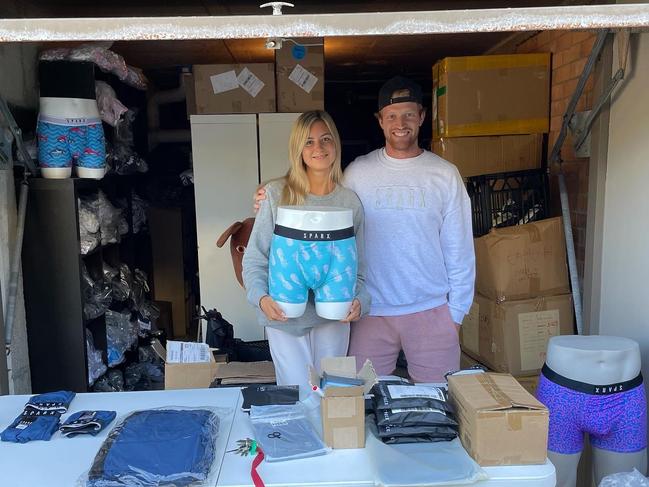
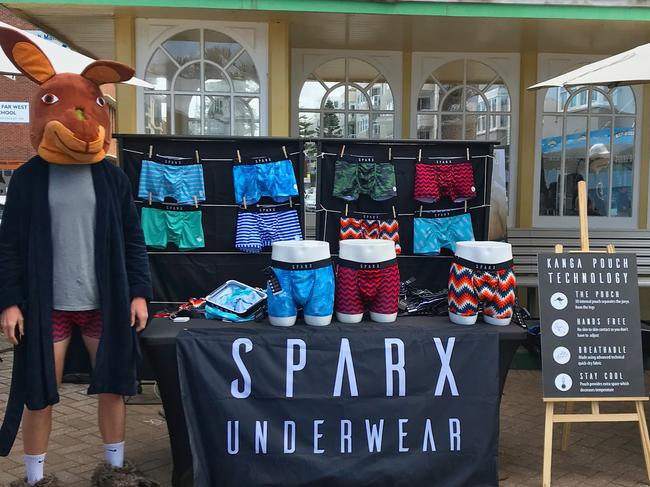
His Sparx underwear comes with an innovative “kanga pouch” which works like a bra for men to prevent rubbing, chafing and sweating and to provide support.
These brands are the most recent to the sector, but not the only indie brands we boast.
Marc Debnam created his brand Stonemen in Bondi 12 years ago after he found himself in a similar situation — standing in a department store that lacked a decent choice in men’s underwear. So, the photographer created his own using images he took himself for a pair of undies that looked unlike any other on the market. Stonemen went from being distributed from a Bondi garage to a warehouse and this year hopes to hit a $5 million target in revenue with products in 120 stores and sold online.
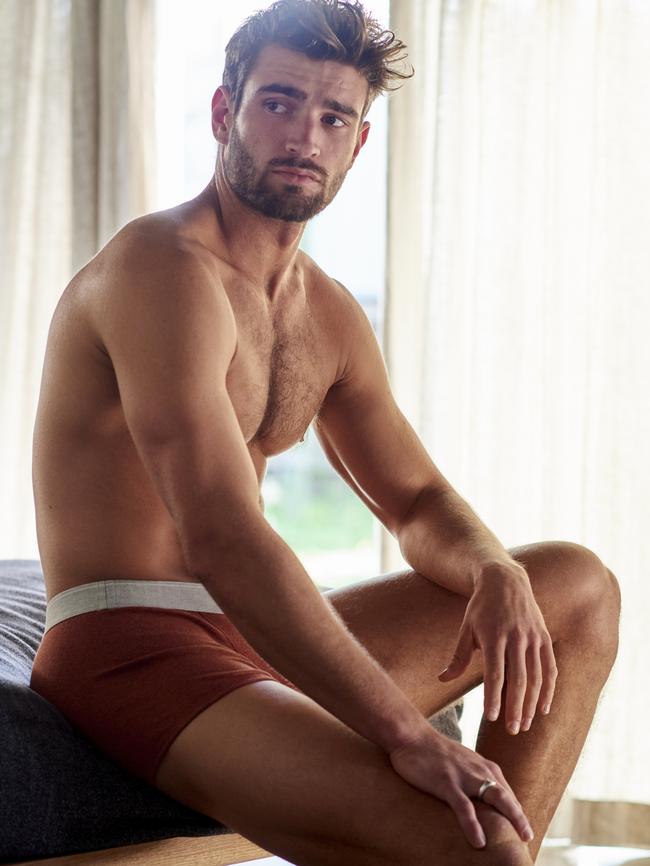
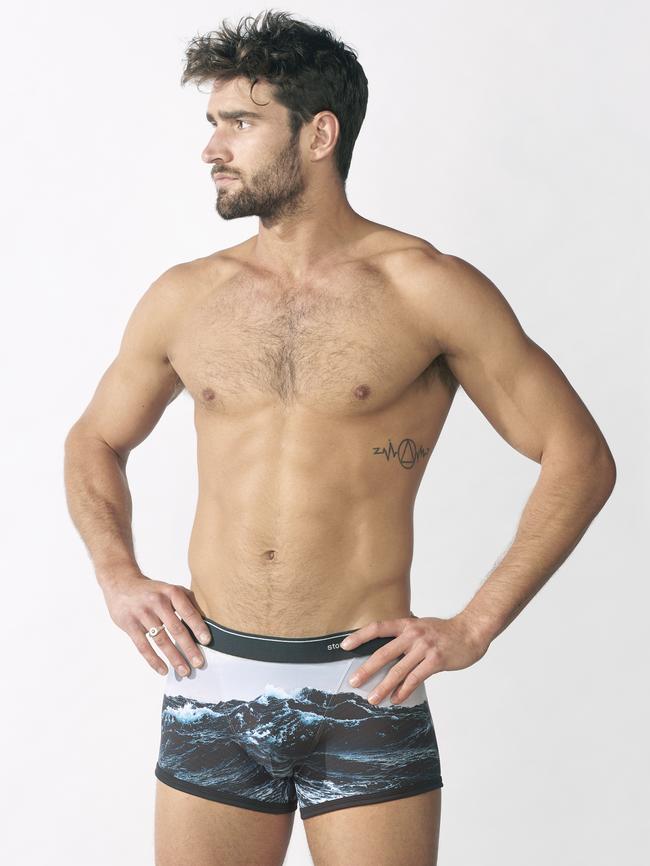
They added women’s underwear five years ago and next year hope to expand into sleepwear, loungewear and socks.
Stuart and Tammy Devenish took a more unusual route to develop their brand, Reer Endz. The Avalon couple were in the rag trade working as buyers for major companies and were approached in 2012 by one of them to create a “homebrand” line to stand alongside brands like Bonds in store. They rejected what Stuart Devenish brought them, so he decided to launch it himself as Reer Endz.
They were in 120 independent stores nationally within 18 months backed up by online sales.
“We are now taking over the Hanes account, who own Bonds, Holeproof and Rio among others, in some of the regional stores,” says Devenish, explaining that small, indie stores prefer to deal with a small company like theirs over major brands who offer the bulk of their range to bigger retailers first.
“Sometimes, when they sell out of Hanes products, they replace their stock with Reer Endz.”
But why has it taken men’s underwear so long to evolve and diversify in Australia?
Nick Hall, digital editor of online men’s culture and style mag Man of Many, says there has been a shift in the perception of buying underwear among Aussie males.
“The biggest change we’ve seen has been in culture and perception, with men far more inclined to pay a premium price for their underwear, as opposed to the 10-pack for $5 that has forever been the norm,” he says.
“Where traditionally men only viewed underwear as an essential, we’re starting to see an evolution of style and function. The contemporary Aussie male is far more concerned with how their clothing represents them as a person, and underwear is a natural extension of this.”
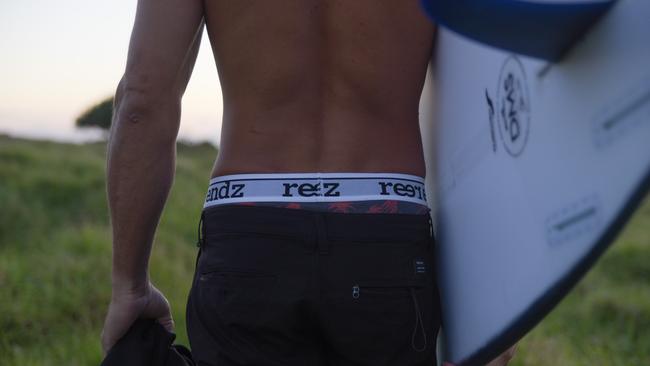
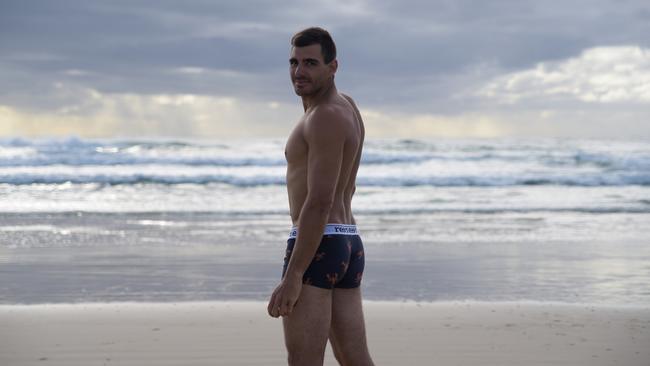
Hall adds a greater awareness of sustainability has also helped many of these brands stand out - Sparx use bamboo; Step One and Boody use organic bamboo; Reer Endz, Wonderpants, Bhumi and Mighty Good Basics use organic cotton and Bushy use a fibre sourced from sustainably harvested Eucalyptus plantations.
Brittanie Dreghorn, editor of Britt’s List, an online publication that focuses on sustainability in fashion, says men aren’t just looking for more choice, but a specific choice.
“As people’s general awareness about sustainability grows, they question if standard cotton is the best thing for our environment and they start to look for alternatives,” she says.
A growing appreciation for ethically-sourced materials has not been the only boost, an online presence has in some cases quadrupled business during Covid. Sales of Stonemen Underwear went up 300 per cent since April 2020; Reer Endz saw a 70 per cent online boost - not bad considering only one quarter of their business traditionally comes from online; and Sparx sales jumped 425 per cent.
While women‘s underwear evolved decades ago to provide greater choice, there are still independent brands in that sector disrupting the big players. Aussie mother-of-three Kristy Chong created Modi Bodi in 2011 to deal with her “unmentionable bladder leaks” after the birth of her second child. Today her patented leak-proof and sweat-proof women’s undies are recognised as world leaders disrupting both the female underwear and feminine hygiene sectors. Global activewear brand Adidas followed Modi Bodi into the market last month releasing period-proof leggings.
“There is always scope for disrupter brands to scale into formidable retail enterprises,” says Assia Benmedjdoub, publisher of retail publication Ragtrader. “Just this month, Australian women’s underwear brand Honey Birdette was acquired for $443 million (by Playboy) after initially launching as a challenger brand 15 years ago.
“Could there be a men’s contender out there?”





